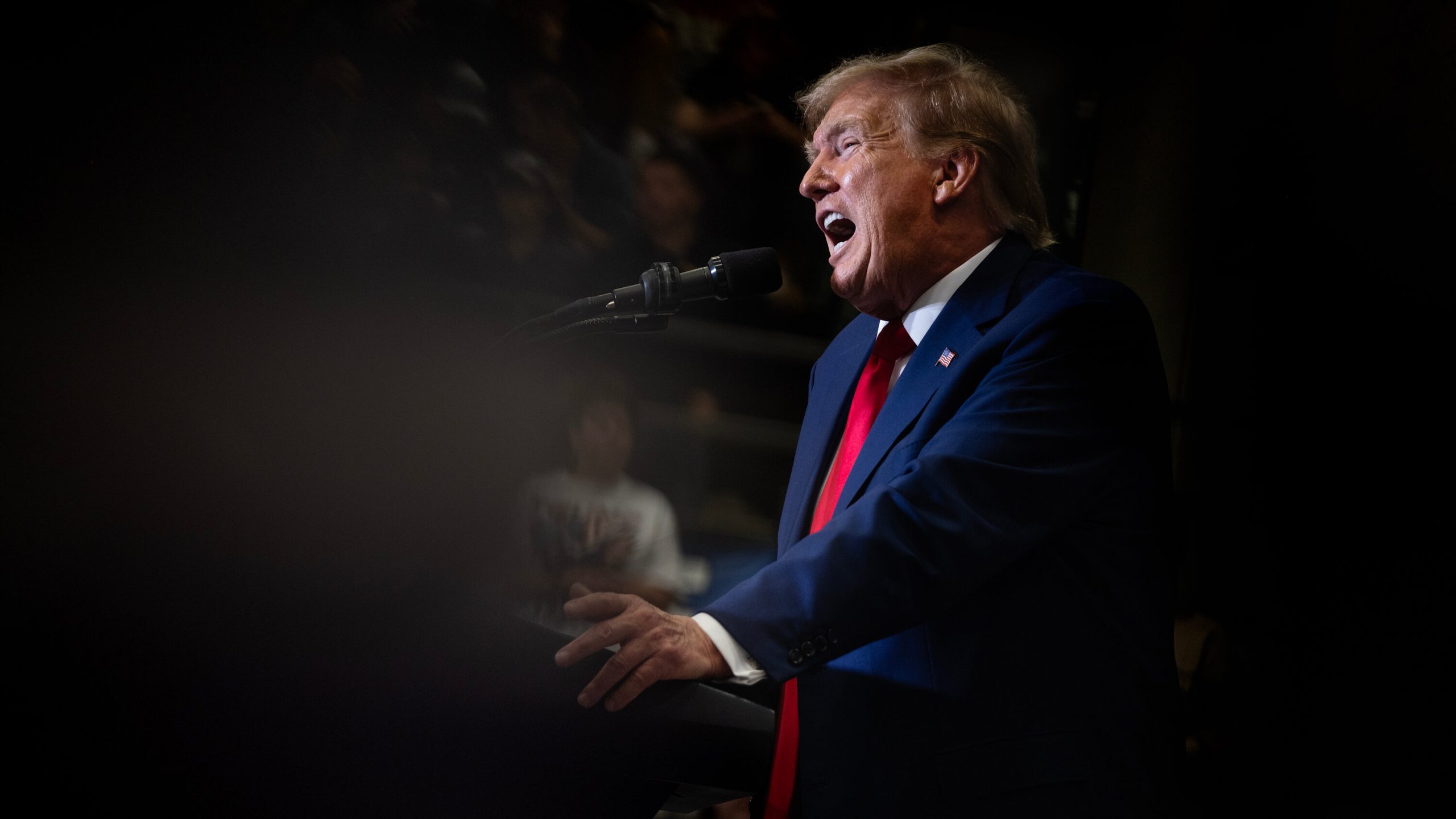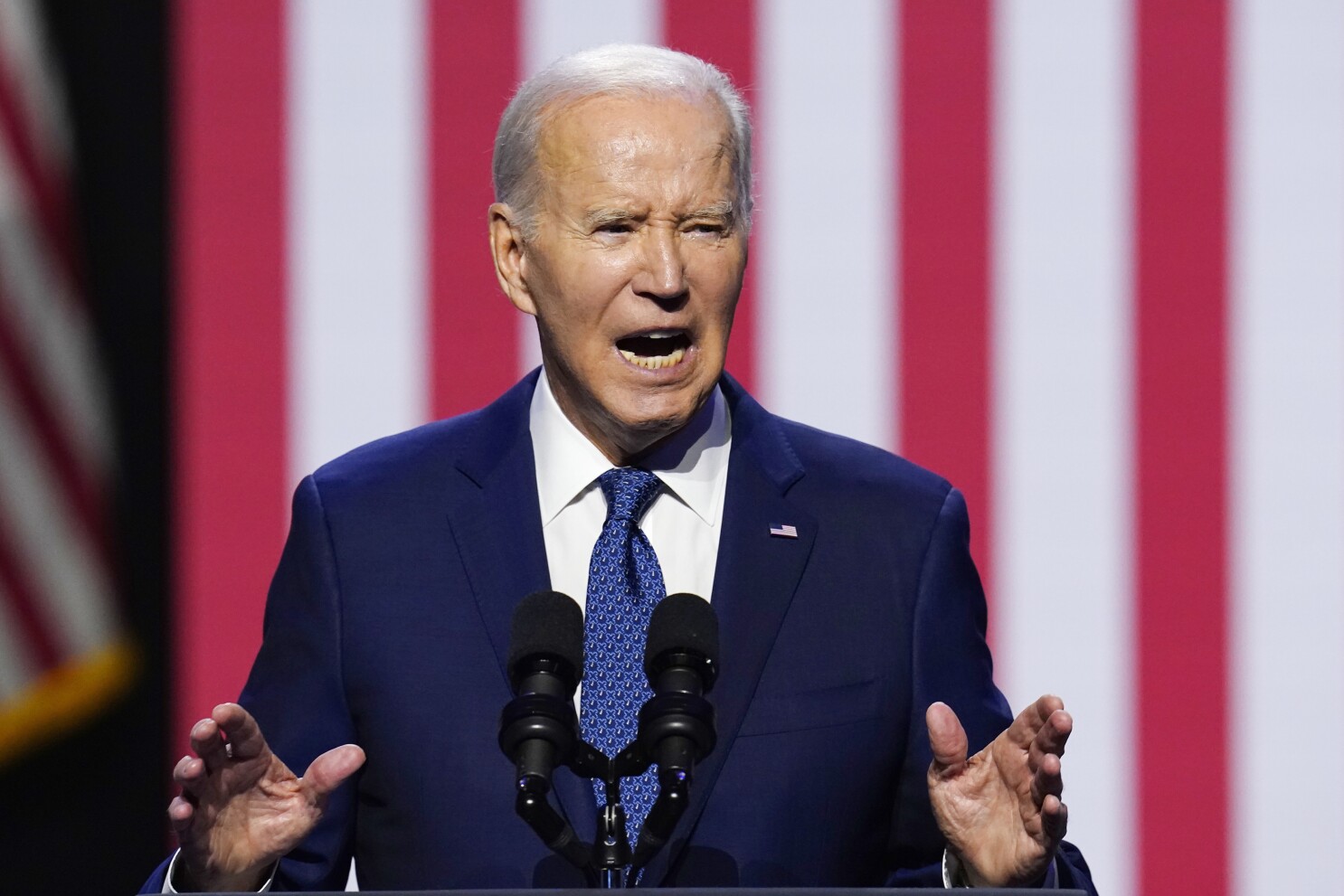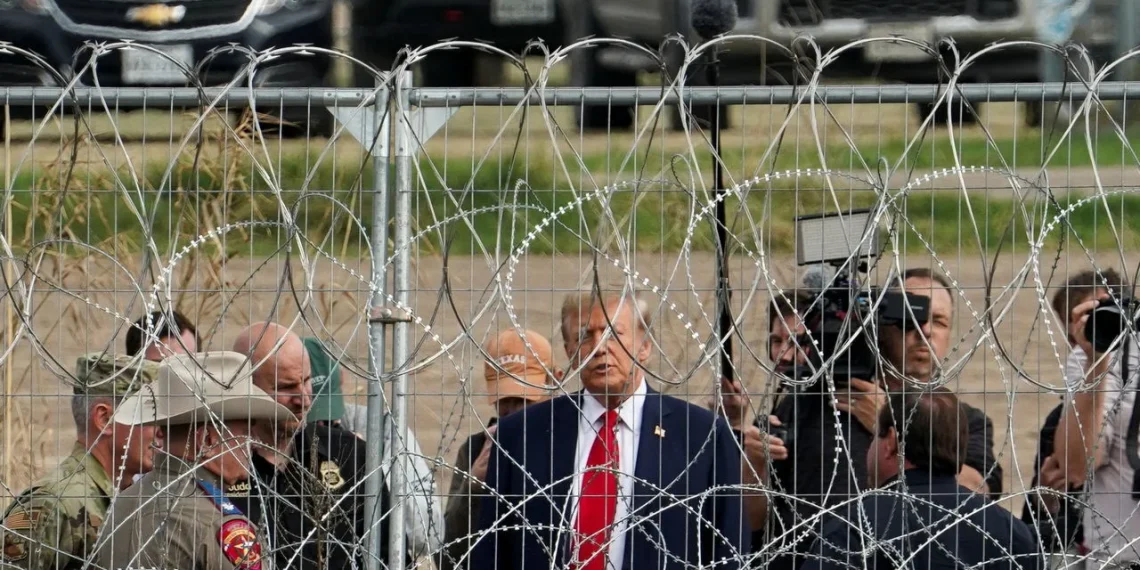At campaign rallies in Greensboro, North Carolina, and Richmond, Virginia, former President Donald Trump launched scathing accusations against President Joe Biden on Saturday. Trump alleged that Biden’s lenient border security policies amounted to a deliberate “conspiracy to overthrow the United States.”
He suggested that Democrats aimed to leverage illegal migrants as a reliable voting bloc, asserting that Biden’s administration sought to “nullify the will of the actual American voters” and secure enduring control.

Trump’s claims were met with a swift response from Biden’s campaign, which pointed to Trump’s role in thwarting a bipartisan border security bill in Congress.
The campaign characterized Trump’s accusations as an attempt to deflect attention from his own actions, emphasizing the importance of addressing border security challenges in a bipartisan manner.
The issue of border security has remained a contentious one, with both candidates conducting separate tours of the southern border along Texas. Their visits underscore the political significance of the issue, particularly in light of Trump’s repeated claims, without evidence, linking migrants to increased violent crime in U.S. cities.
During the rallies, Trump characterized the influx of migrants as an “invasion,” warning against Biden’s purported plans to transform public schools into “migrant camps.” He vowed to prevent the United States from becoming a “crime-filled, disease-ridden dumping ground.”

Jennifer Mercieca, a professor at Texas A&M University specializing in political rhetoric, noted Trump’s penchant for deploying unfounded conspiracy allegations to undermine his opponents. She highlighted the strategic nature of Trump’s rhetoric, which often relies on “self-sealing narratives” that are difficult to disprove.
Trump’s campaign efforts in North Carolina and Virginia come ahead of their respective primaries on Tuesday, part of a series of nominating contests across the country.
These contests are expected to bring Trump closer to securing the Republican presidential nomination, underscoring the significance of his border security messaging in rallying support among conservative voters.




